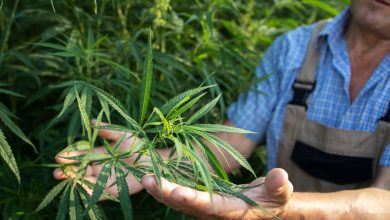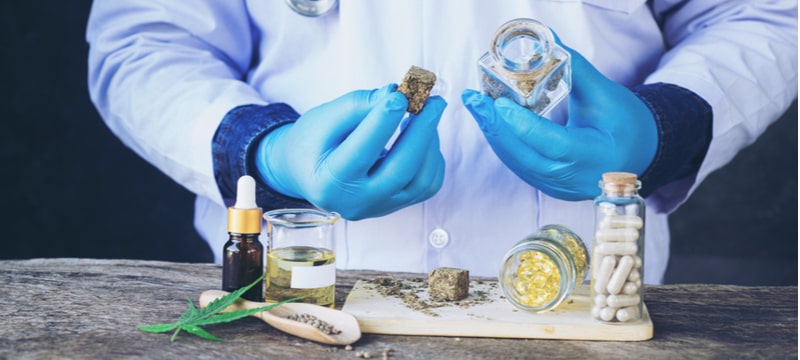
The Extract undertook CBD lab testing of over 60 products on the CBD UK market. With the surge in popularity of CBD products, CBD oils and tinctures are widely available in the UK. We wanted to find out how legitimate are they?
Before they're launched, CBD products should undergo rigorous lab testing and those that fail to meet the required levels as set out by the UK government and our own CTA should not be allowed on the shelves.
Table of Contents
Our findings
Unfortunately, we have found many who have made it to the consumer with either illegal levels of THC or the CBD levels not being as advertised on the label.
Things have improved since the BBC report in Trust me I'm a doctor, but illegal levels of THC and mislabeling is still showing in our sample. The CBD industry is getting better and stronger with every month and as we see more legislation and protection for reputable brands it will only get better.
While medical cannabis has been legal in the UK since 2018, high street retailers have sold CBD products since their inception. Many trustworthy companies have potentially helped consumers with anxiety, pain, even sleep and are part of a very important industry in our economy, unfortunately, some wholesale or retail suppliers are still not meeting the level of professionalism we need.
Here we outline some of the best retailers in our opinion based on those tested who met the levels of CBD advertised and having THC levels below 1mg which is the legal limit in the UK.
We believe that CBD has amazing potential. However, we also know that certain manufacturers have capitalised on the CBD-product boom. The vast availability of CBD products is proof of that.
The bad news is that there's really no way to find out what's in your CBD products once purchased unless you do proper research before buying CBD based products. Check Trustpilot and forums to see who is gaining the best reputation. Using suppliers who include their COA on the product page is the best way to ensure your products are as they advertise.
Without a official COA, this means that users have to rely on what it says on the tin.
However, at The Extract, we work hard to bring you the facts. We didn't want to leave it at that. We went one step further and had some CBD products tested.
CBD lab testing : how it's done
By testing these products, we wanted to measure and verify the amount of CBD they actually contained. We also wanted to find out if THC was present in products readily available on the high street.
To do this, we sourced over 60 products, across 18 different brands. We didn't just focus on oils; we tested edibles, too. In addition to this, we didn't want to take CBD companies' labelling at face value.
This is where partners like ADACT Labs comes in. We've worked with ADACT Labs before. Their CBD lab testing methods mean that results are incredibly accurate. They've also got the CBD testing equipment to complete these inspections.
We have our results. Let us break them down for you.
How much CBD is in your products?
It's not all bad news. During the CBD lab testing process, we found out that the majority of the products we tested contained some form of CBD.
However, just how much CBD do they contain? We also found out that despite their packaging, the CBD content can deviate.
For example, while examining one of the brands, we discovered that 50% of their products contained less CBD than they advertised. In addition to this, 39% of the products from this brand contained more CBD than advertised.
This made us wonder — how many CBD products are labelled inaccurately? We continued to test several other brands, and here's how we broke the data down:
- 82% of all the products we tested (50 of 61)delivered the promised amount of CBD or more than the promised amount of CBD.
- 18% of all the products we tested (11 of 61) delivered less than the promised amount of CBD (includes the 3 below).
- 5% of all the products we tested (3 of 61) delivered practically no CBD whatsoever.
This showed us that of the 61 products that we tested, 62% were within 10%.
Proper CBD lab testing equipment means room for improvement
It's clear that manufacturers can't always deliver on the dosage promised on the label. However, don't let this deter you from trying out — or continuing to use — CBD products.
The CBD product industry is a new one. This means that many of these products are still being developed and expanded on. Additionally, this means that NHS and MHRA (Medicines and Healthcare Products Regulatory Agency) guidelines are also still in development.
BBC Trust me I'm a doctor Testing
A great example of this is a study done by the BBC. In trust me I'm a doctor, the BBC tested 12 popular CBD products. They did this by sending these products to the ICCI — the International Cannabis and Cannabinoids Institute.
By doing this, they found that 25% (3 of 12) of these products contained less CBD than advertised on the label. Out of the three products, a product that claimed to contain 500mg of CBD did not meet its mark. In fact, this product contained only traces of CBD — a barely detectable amount.
Based on our CBD lab testing results, we found out that 82% of the products tested contained the advertised amount of CBD or more. This is, without a doubt, a huge improvement.
Therefore, we're able to tell you, with confidence, that things in the CBD industry are improving.

* Includes the products below 10%.
Note – Table updated 12th November to allow a wider variance on CBD levels.
Trendspotting — what did we find out?
Earlier, we mentioned that we tested a variety of CBD products. We tested CBD oils, vape liquids, edibles, balms, skin creams, and gels. We also noticed a certain pattern, among these products.
CBD oils
We tested a total of 39 CBD oils. Out of these 39 CBD oils, we found out that 17% (7 of 39) of them contained within 2.5% the advertised dose, when we allowed for a 10% variance (24 of the 39) had CBD matching the advertised levels. 82% (32 of 39) had the advertised or more than the advertised dose of CBD.
Based on our tests, CBD oil has one of the highest number of consistencies, across the portfolio of CBD products. Therefore, CBD oil remains a reliable way to ingest CBD.
CBD vape liquid
We tested a total of three CBD vape liquids, from three different brands. Upon testing these CBD vape liquids, we found out that all 3 100% (3 of 3) contained the CBD they advertised dose. The issues we came across were THC related and dealt with further below.
Based on our tests, CBD vape liquid can be relied upon to deliver CBD but perhaps has THC levels higher then we allow in the UK per product. The individual dose per vape would contain very little THC and be below 1mg but the law focuses on the full product contents which in 2 cases tested above 1mg. However, to establish if this is common, more work will have to be done, with a larger sample size.
CBD edibles
We tested a total of nine CBD edibles. We found out that 11% (1 of 9) contained more CBD than the advertised amount. Only 56% of products (5 of 9) closely matched the labels, with regards to their CBD dose.
33% (3 of 9) of edibles contained noticeably less CBD than their advertised dosage.
Through CBD lab testing, we analysed a variety of capsules, tinctures, paste and gummies. Based on the CBD test kit results, we found out that CBD was least present in gummies.
CBD was most present in capsules, with all capsules we tested containing the same of more than the advertised dose.
CBD balms, skin creams, and cosmetics
We tested a total of ten CBD balms, skin creams, and cosmetics. Of these topicals, we found that only 30% (3 of 10) contained more CBD than the advertised dose.
In addition to this, we also found out that an additional 10% (1 of 10) contained slightly less than the advertised dosage. 51% (6 of 10) contained the advertised CBD.
Therefore, based on our results, research CBD topicals before making a purchase.
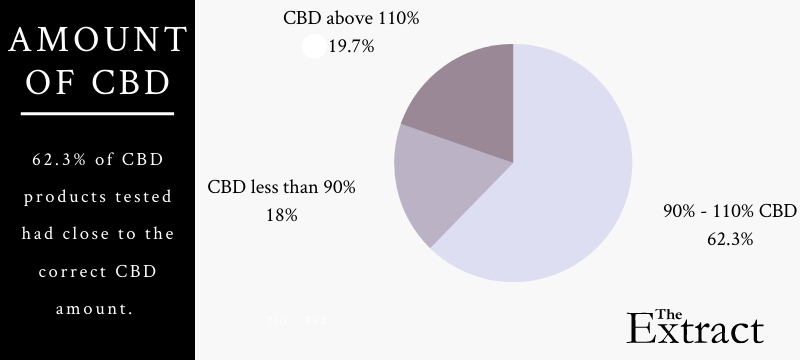
The purpose of CBD lab testing
We were a little surprised by these results — and you might have been, too. However, it's important to remember that CBD is a growing industry. With this growth, more research will occur into how and why CBD helps people and this growth will, in turn, will force the government and the manufacturers to take steps to ensure our products are not only safe but actually match the advertised labels. Testing and checks are the easiest way to ensure compliance.
At The Extract, we wanted to do our bit to contribute to researching CBD products.
A number of products that we tested were identified as being some of the best products on the market. Many of them had multiple positive reviews. They also tout a number of CBD-related benefits.
This is why we were so surprised to see that some of these products contained less CBD than advertised. It was also startling to learn that some of these products contained only trace amounts of CBD.
Some of the best CBD products on the market were flagged by our tests. This made us question why they're described as the best when their CBD content is lacking.
It is important for brands to test their products throughout the manufacturing process. It is also important for brands to be transparent with these results. When we tested CBD content across brands, the results were staggering.
Let us break the data down for you.
- 48% of brands sold products with less CBD than advertised or more THC.
- 18% of brands sold products with more CBD than advertised.
- 34% of brands sold products where the CBD content matched the label.
This is why testing matters. When products are tested regularly, whether in-house or externally, and results are released, brands are able to analyse and adjust the levels of CBD these products contain.
This will lead to a better experience for people who use CBD products.
THC could be trouble
In addition to this, we tested these products to learn if they contained THC. In the UK, the legal limit for THC in CBD products is 0.2% for growers. It should be noted that this only applies to farming hemp, and not the finished CBD products.
For suppliers, 1mg of THC per product is the maximum, legal level allowed. This means that in order to be sold, high street products should legally contain less than 1mg THC.
This is because THC contains intoxicating psychoactive compounds that people commonly associate with marijuana. During our testing process, we learned that 96% of the products we tested contained trace amounts of THC, keeping in with legal guidelines.
However, we were astonished to learn that 36% of the products we tested contained more THC than the legal limit.

These products are readily available on the high street, which calls into question testing from manufacturers.
Similarly, we identified a number of brands who deliver more CBD than promised. This might seem like a bonus — buying a bottle of CBD oil, only to get more than you bargained for.
However, this isn't always the case. Individuals who turn to CBD for medical purposes need a constant, reliable dosage. They can't rely on roughly-estimated doses to help with pain relief or to improve their quality of sleep.
Key takeaways
At The Extract, we understand that CBD lab testing isn't always possible — especially for the consumer.
That's why it's important to research CBD products before making a purchase. A CBD product isn't always what it says on the tin. However, the responsibility shouldn't fall to the consumer to ensure that the CBD product will do what it says.
The CBD industry might be a developing one, but manufacturers should strive towards transparency. Quality control matters — especially when customers rely on CBD products for their health.
Choose a supplier that is reliable and Cannmed Products UK is a premium wholesale and white label supplier. The products tested delivered by Cannmed all passed, as wholesale partner they would be the best UK option from the test results.
As the government researches CBD products, better legislation can be put into place, to ensure that CBD users are getting what they pay for. However, until then, manufacturers should strive towards transparency and accurate labelling.
Recommended CBD products
These results might be surprising to you. However, this doesn't mean you should stop buying or trusting CBD products altogether. At The Extract, we want to help you make some informed decisions.
Here are some products that have passed our tests with flying colours.
Tinctures appear to be the best way to take in CBD in the UK.
Overall recommended CBD tinctures
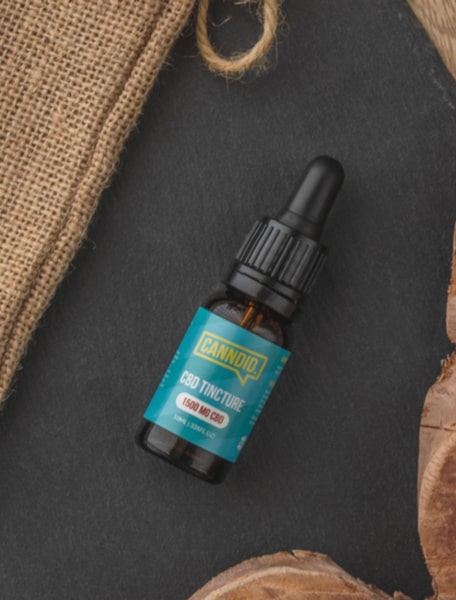
1
Canndid CBD Tincture
£14.99 – £49.99
Available in:
- 2.5% – 250mg per 10ml
- 10% – 1000mg per 10ml
- 15% – 1500mg per 10ml
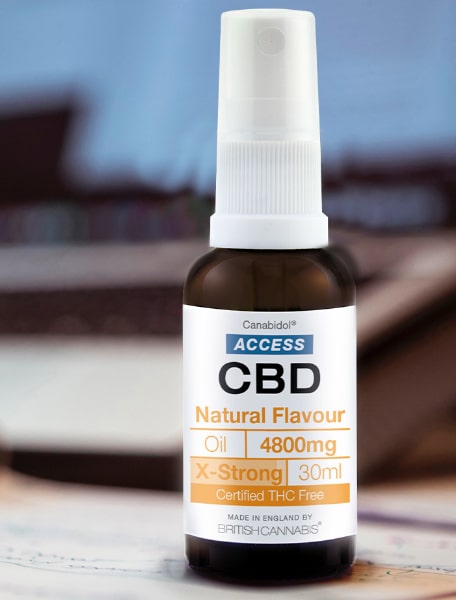
2
ACCESS CBD Tincture
£5.99 – £29.99
Available in:
- 300mg
- 600mg
- 1200mg
- 2400mg
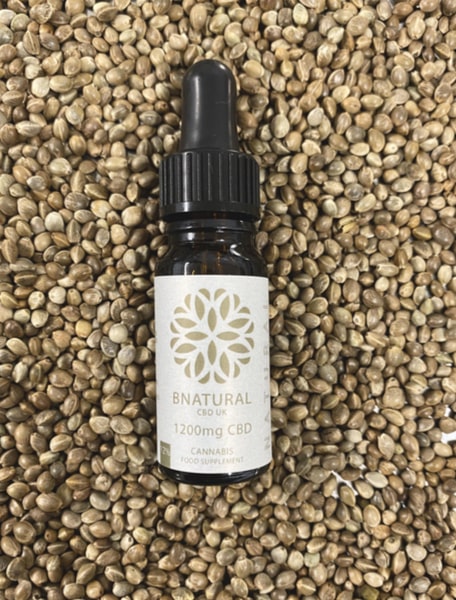
3
Bnatural Oral Drops
£47.00
Available in:
- Natural
- Peppermint
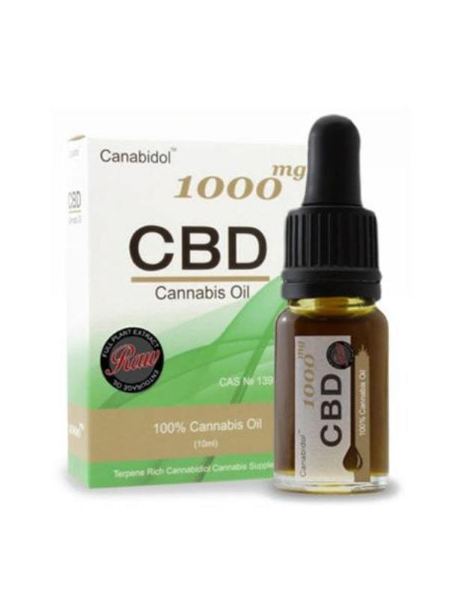
4
Canabidol Tinctures
Raw & Refined CBD
£20.00
Available in:
- 250 mg
- 500 mg
- 1000 mg
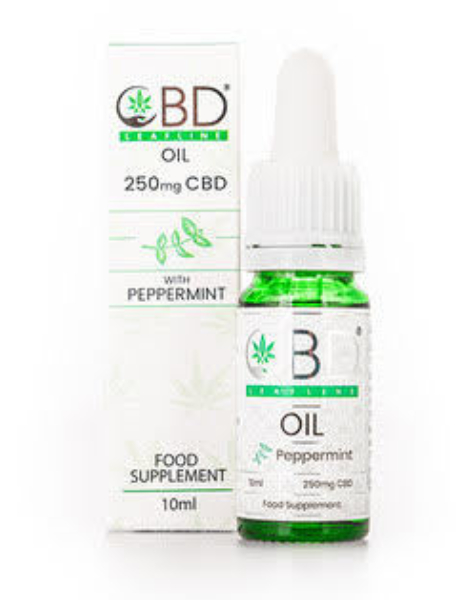
5
CBD Leafline
£19.99
Available in:
- 250 mg
- 500 mg
Best CBD edible
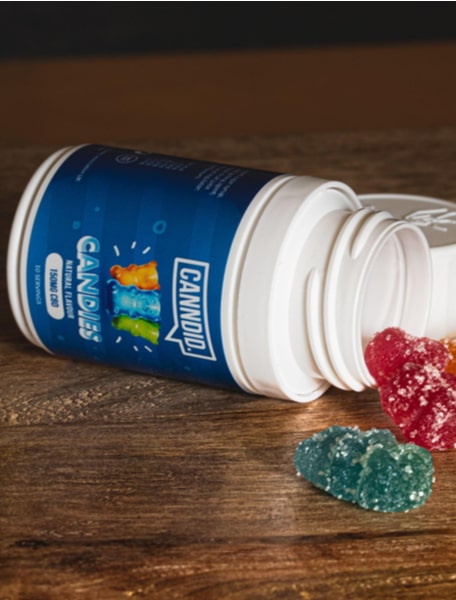
Canndid Candies
400mg CBD
£14.99 – £19.99
Available in:
- 15mg CBD per Gummy
- 25mg CBD per Gummy
Best CBD e-liquid
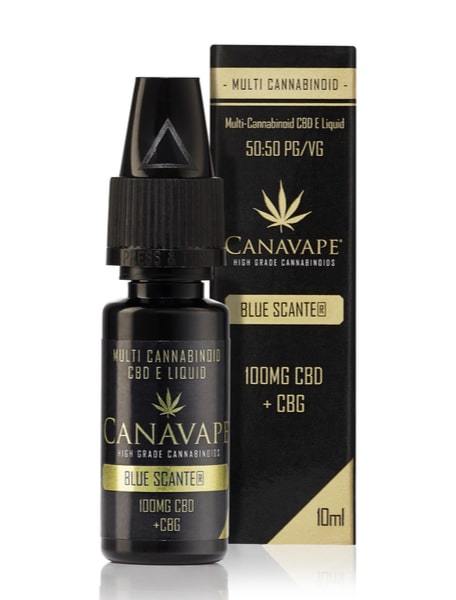
Canavape CBD E Liquid + CBG
100mg CBD & 10mg CBG
£11.00
Flavour available :
- Blue Scante
Overall recommended skincare
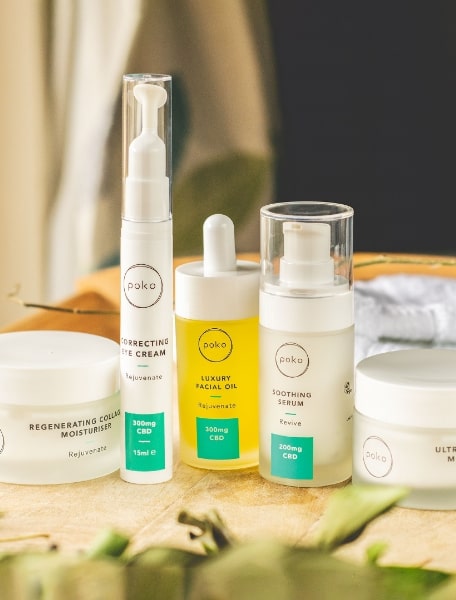
1
Poko
£23.95 – £34.95
Skincare includes:
- Correcting Eye Cream
- Luxury Facial Oil
- Regenerating Collagen Moisturiser
- Soothing Serum
- Ultra Hydrating Moisturiser
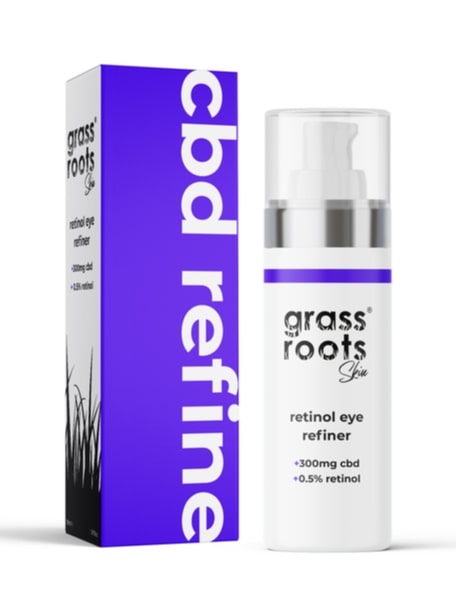
2
Grass Roots Skin
£39.99
This retinol and collagen packed eye gel is the perfect solution for keeping your under-eye area hydrated and refined. Using CBD isolate, aloe vera and green tea extract which together moisturise, hydrate and reduces the signs of ageing for your skin.
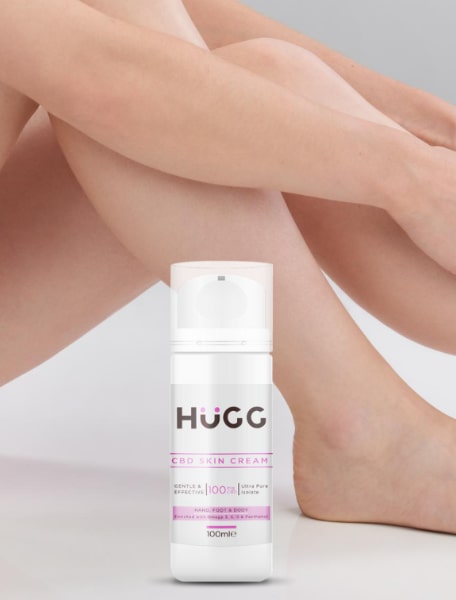
3
Hugg CBD Skin Cream
£29.99
This cream can be applied to hands, feet and body. Made with ultra-pure CBD isolate and enriched with Omega oils to moisturise and nourish the skin.
*Note: Correct levels were taken based on +110% of the advertised CBD. The samples were limited to one of each product and the results may vary if multiple samples of each were taken.
The Extract relies on the 3rd party testing and takes no responsibility or otherwise for the reliability of the testing.
18th November – Updated the results to allow for 10% variance, updated the summary table to this effect.

